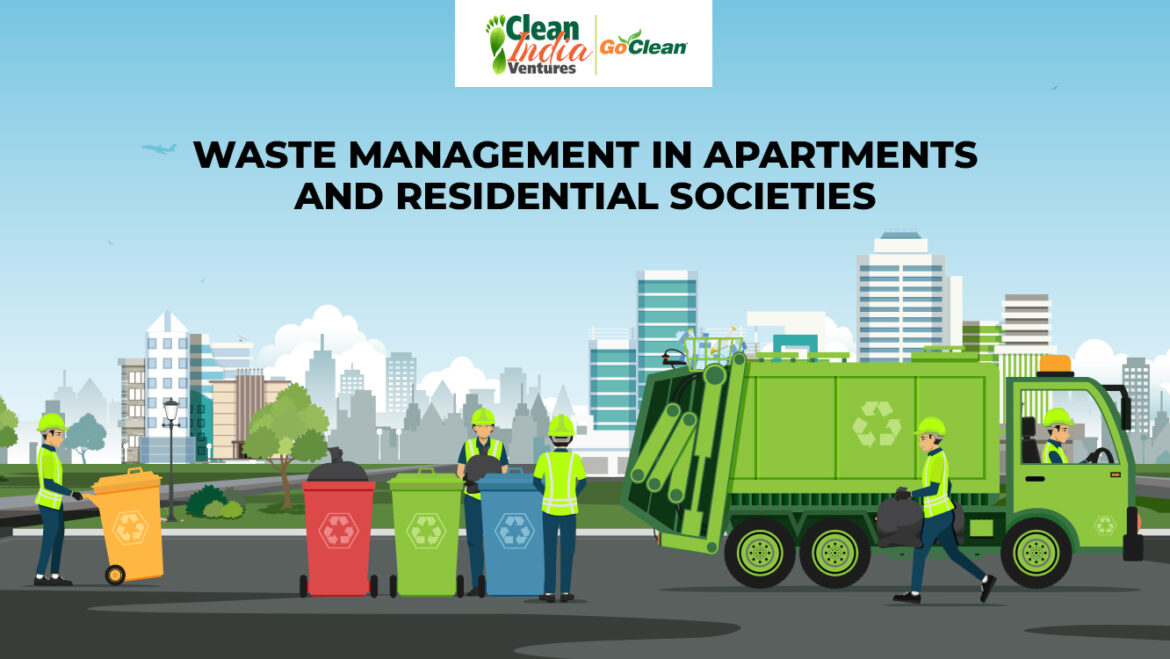Did you know that in India, 62 million tonnes of waste is generated by urban population every year?
But the worse is yet to come — Out of this 62 million tonnes, less than 80% is collected and only a meager 22% is processed.
On top of it, our top 2 cities — Mumbai & Delhi — alone generate approximately 11,0000 and 8,700 tonnes of solid waste per day respectively.
Why Household Waste Matters?
A report by MoHUA says that nearly 30% to 55% of Municipal solid waste is organic biodegradable matter.
Now you know why a proper management of household waste is important.
Understand Household Waste
A typical Household Waste can be classified into 3 categories:
- Dry Waste
- Wet Waste
- Hazardous Waste
Dry Waste
These are the wastes that are non-decaying. Or to put it simply, “Dry waste” means waste other than bio-degradable waste and inert street sweepings.
This waste doesn’t contain any organic substances such as food, etc.
The common Dry wastes that can be found in households includes paper, plastics, metal, glass, rubber, thermocol, cloth, rexine, wood, empty bottles, cleaning boards, a bottle of toilet and floor, broken stationery, water bottles, etc. — i.e. anything that takes long to breakdown.
Also, make sure to wipe off the traces of edible items before putting your bags, packs, etc. into the Dry Waste bin.
Further, make sure to store broken glass and any other kind of sharp material in a separate transparent bag.
Wet Waste
Wet Waste is generally biodegradable in nature, and mostly comes from kitchen.
The common wet wastes that can be found in households are left food, rotten vegetables, fruits, vegetable peels, fruit peels, used tea bags, coconut shells, used flowers/leaves after pooja, meat and non-veg. food remains expired food items like bread and biscuits.
This waste can be easily turned into compost — an efficient wet waste solution for Apartments and Residential Societies.
Hazardous Waste
Household Hazardous Waste (HHW) consists of unwanted household products that are labeled as flammable, toxic, corrosive, or reactive.
The most common things to be found in household hazardous waste are aerosols, anti-freeze, asbestos, fertilizers, motor oil, paint supplies, photo chemicals, poisons, and solvents.
Please note that improper disposal of these products is not only illegal, but can cause serious threats such as contaminate drinking water, pollute the bay, and seriously injure garbage and recycling collection and landfill employees.
What Are The Responsibilities Of The Residents Of A Housing Society / Apartment Complex?
Since Organic waste contributes to almost half of the waste produced, it’s our responsibility as an individual to segregate it at source to ensure a smooth disposal of it.
- Here are a list of things that the residents of a housing society/apartment complex can do to manage more efficiently:
- Have separate bins for dry & wet wastes. Also, make sure to wrap Diapers & sanitary waste in newspaper with a red cross on it.
- Collect Razor/blades in a transparent jar to make it visible to the housekeeper.
- Don’t mix dry waste with other waste.
- Ensure a daily disposal of your wet waste.
- Store and dispose of your dry waste atleast once a week or as per the your society’s instructions.
- If you use Eco-friendly products, make sure to use the ones with a recycling mark on them.
What are the Responsibilities of the Managing Committee members of the Society?
If you’re a secretary of a society or some other key person, it is your duty to implement & ensure the proper follow of waste management rules.
Here are some things you can do to ensure a smooth waste management system in place for your society:
- Create awareness amongst the members and staff of the Managing Committee about the waste segregation.
- Have separate dustbins installed in society for storing dry and wet garbage.
- Create awareness among residents about waste segregation by displaying posters in the lift or corridor.
- Appreciate & reward the members or residents who follow the segregation process.
- Society can install a fully automatic composting machine such as GoClean Organic Waste Reprocessors, that can convert organic waste into compost within 24 hours. These machines come in a range of capacity options that helps you choose the one that suits your need.
- Have a separate area for discarding plastic bottles, tetra packs & e-waste including tube -lights, LED, etc.
Conclusion
To ensure a proper waste management system in place, it is very vital that the RWAs stay updated about the latest developments in SWM Rules and Compliance.
This can be done by following municipal/city civic portals and MoHUA/ Swachh Bharat Mission websites.
With rapid growth projected for domestic & global waste management markets in coming years, it becomes crucial for housing societies—who are a significant part of the urban landscape and play a crucial role in its waste management—to stay proactive by keeping themselves well informed and well-equipped about waste management rules.
